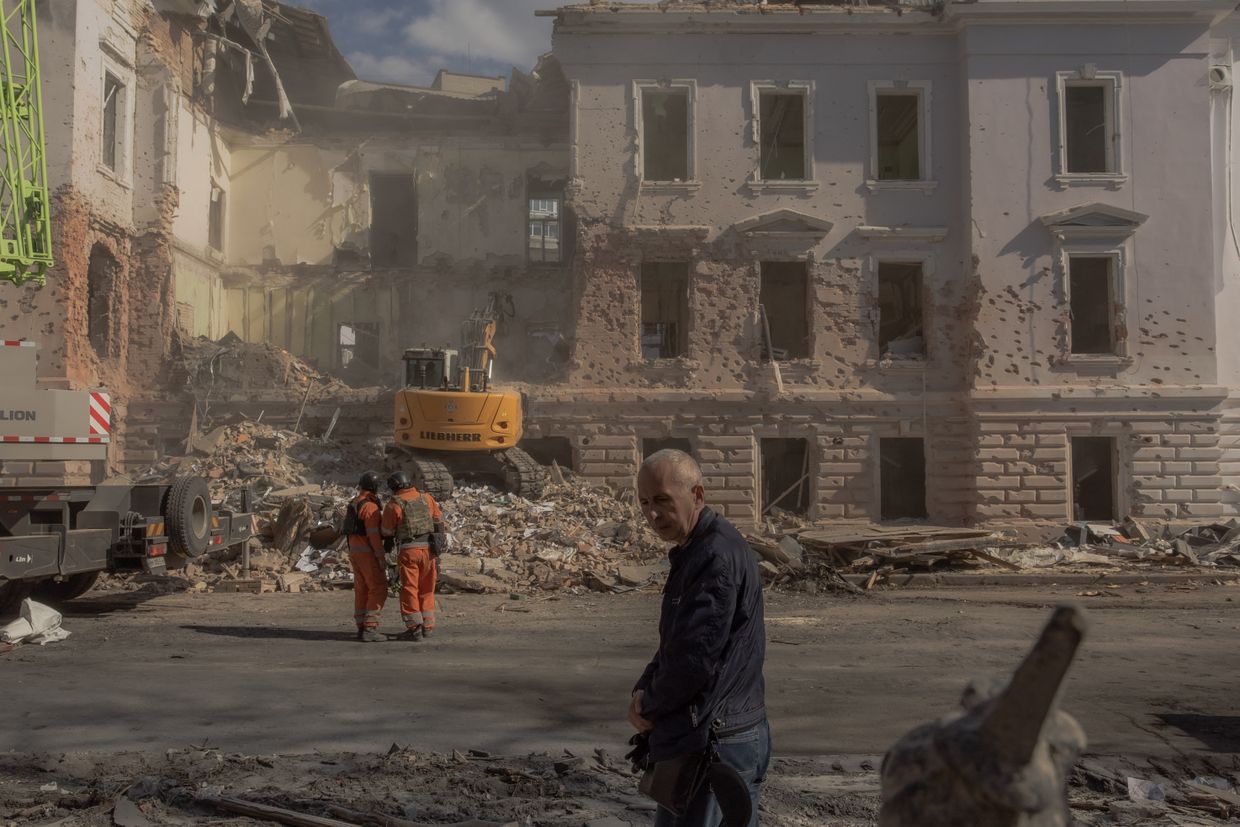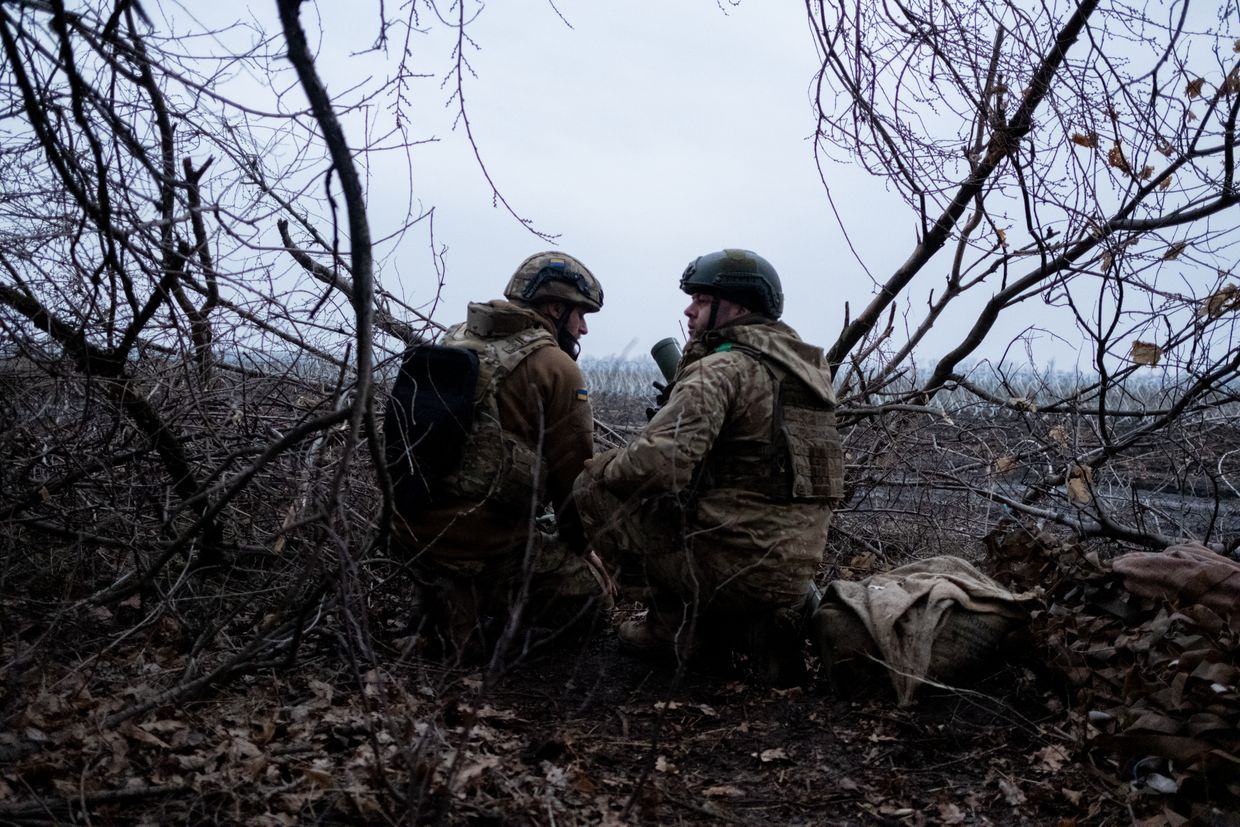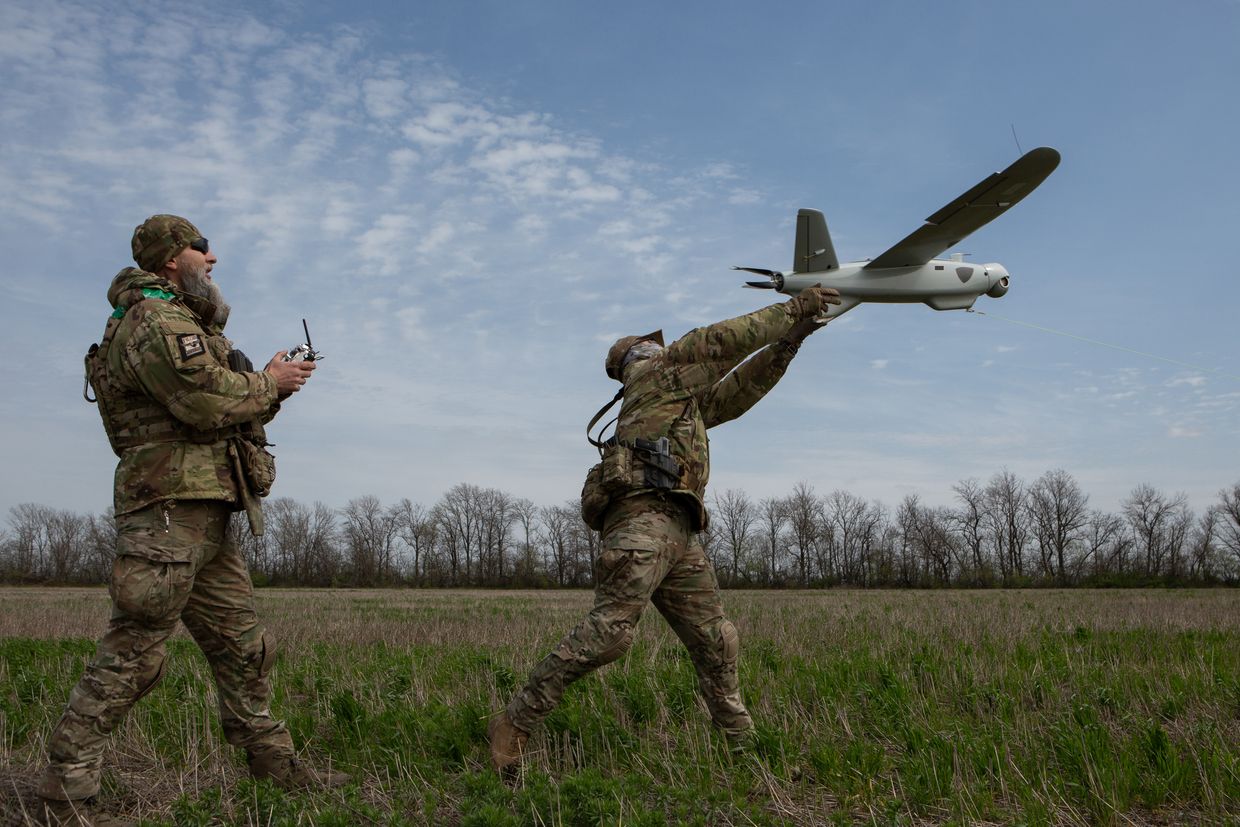Key developments on April 16:
- Ukrainian drones reportedly strike another Russian missile brigade linked to Sumy attack
- North Korea earns over $20 billion aiding Russia's war effort, report says
- Kyiv doesn't rule out North Korean participation in Russia's assault on Sumy, Kharkiv oblasts
- Russia arms 'kamikaze' drones with chemical weapons, Ukraine says
- Russia has violated 'energy ceasefire' more than 30 times, Ukraine says
Ukrainian drones struck the Russian city of Shuya in Ivanovo Oblast on April 16, reportedly targeting military infrastructure linked to Russia's 112th Missile Brigade, according to independent Russian media outlet Astra.
The 112th Brigade, along with the 448th Missile Brigade, was involved in a deadly missile strike on the Ukrainian city of Sumy on Palm Sunday on April 13 that killed at least 35 civilians, Ukraine's intelligence said.
The Russian Defense Ministry claimed that seven Ukrainian drones were destroyed over Ivanovo Oblast on April 16. Local authorities reported no fatalities, but two people were reportedly injured and received medical attention.
The Kyiv Independent could not verify the claims.
Photos from the scene show plumes of smoke, and military equipment was deployed in the city, according to Astra.
Shuya is situated on the Teza River, approximately 33 kilometers (20 miles) from the regional center, Ivanovo. It lies about 700 kilometers (435 miles) northeast of the Ukrainian border.
Earlier, Ukraine's General Staff confirmed on April 15 that its forces had also targeted and struck the base of the 448th Missile Brigade in Kursk Oblast.
The operation involved Ukraine's Unmanned Systems Forces, the Special Operations Forces, and the Security Service of Ukraine (SBU) and was launched as retaliation for the Sumy attack.
Ukrainian officials have asserted that cluster munitions were used in the Sumy attack, a serious violation of international humanitarian law when used in civilian areas. The international community widely condemned the strike, labeling it a war crime.
Ukraine's military has pledged to track and retaliate against all Russian units involved in targeting civilian populations.
North Korea earns over $20 billion aiding Russia's war effort, report says
North Korea's military support for Russia's full-scale war against Ukraine has already earned Pyongyang more than $20 billion, according to South Korea's Institute for Defense Analyses (KIDA), Newsweek reported on April 16.
KIDA's estimates show that most revenue stems from large-scale artillery ammunition shipments. North Korean munitions now account for roughly half of the Russian army's artillery needs in Ukraine, with some front-line units entirely reliant on the shells.
Between August 2023 and March 2025, North Korea reportedly shipped more than 15,800 containers of munitions to Russia. Satellite imagery revealed 64 voyages by Russian ships, potentially delivering between 4.2 million and 5.8 million rounds of North Korean ammunition.
In return, Pyongyang is said to have received advanced Russian weaponry and military technology, rather than cash. The report suggests North Korea prefers "in-kind and technical assistance" that enhances its own defense industry and supports its long-term strategic goals.
North Korea deployed more than 11,000 troops to support Russia's war efforts, most of whom were sent to Russia's Kursk Oblast. Ukraine estimates 5,000-6,000 casualties among them, highlighting the high human cost of Pyongyang's involvement.
The deepening military alliance raises broader regional concerns, with KIDA warning that closer cooperation could lead to Moscow intervening on the Korean Peninsula in the event of a crisis.
"Russia-North Korea military cooperation raises the chances of Russia stepping in on the Korean peninsula if there's an emergency," the report said, urging the international community to adopt measures to sever the alliance.
Russian President Vladimir Putin has described North Korea as a "partner," confirming that a bilateral defense treaty signed in 2024 is now in force. He has also suggested that Pyongyang could be included in future negotiations to end the war in Ukraine.

Kyiv doesn't rule out North Korean participation in Russia's assault on Sumy, Kharkiv oblasts
Ukraine does not rule out the possibility that Russia will deploy North Korean troops in the offensives against the northeastern Sumy and Kharkiv oblasts, Andrii Cherniak, spokesperson for Ukraine's military intelligence (HUR), told Japanese broadcaster NHK in comments published on April 15.
The warning follows a statement from Commander-in-Chief Oleksandr Syrskyi, who said on April 9 that Moscow's spring offensive "has actually already begun."
"Unfortunately, we can talk about the evolution, about the successful training of the North Korean military," Cherniak told NHK last week, noting that Pyongyang's forces have adopted Russian tactics of using drones and electronic warfare systems.
According to the intelligence spokesperson, North Korean troops operate in small assault groups and do not require ongoing coordination with Russian commanders.
They are instructed to "reach this or that frontier," after which they move forward independently, Cherniak explained. He added that the soldiers do not constantly communicate with the Russian side.
Cherniak warned that their battlefield experience will be transferred back to North Korea and shared with other units, reinforcing Pyongyang's capabilities and contributing to instability in the Asia-Pacific region.
Cherniak's comments come amid reports of other foreign fighters aiding Moscow. President Volodymyr Zelensky said on April 11 that "several hundred" Chinese nationals are also fighting in Russian ranks. Two were captured in Donetsk Oblast earlier this month.
Beijing has denied any direct involvement in the war, saying it has always appealed to its citizens to avoid armed conflicts.
Russia arms 'kamikaze' drones with chemical weapons, Ukraine says
Russian forces have deployed Shahed-type "kamikaze" drones carrying toxic substances to attack Ukraine, the Center for Countering Disinformation at Ukraine's National Security and Defense Council said on April 16.
Russia has been intensifying its use of chemical agents on the battlefield in Ukraine, with Kyiv recording over 6,000 cases of use of munitions containing hazardous chemicals between February 2023 and 2025.
A capsule with CS gas, a riot control agent, was found in one Russian drone, the center said, adding it had verified the information with Ukraine's security services and the State Emergency Service.
CS gas, also referred to as tear gas, is typically used as a crowd-control agent by law enforcement agencies around the world and is less lethal than other chemical weapons. Its battlefield use is nevertheless banned under the 1925 Geneva Protocol.
"Russian forces may scatter the capsules with poisonous substances to cause harm," the center said on Telegram. At the same time, the agency noted that claims circulating in the media that the drones themselves are coated with poisonous substances have not been confirmed.
Since the beginning of the all-out war, Ukraine's radiation, chemical, and biological intelligence units have been monitoring and recording the use of hazardous chemicals in attacks.
Ukraine struck back at Russia's use of illegal chemical weapons in December 2024, when the Security Service of Ukraine (SBU) assassinated Lieutenant General Igor Kirillov, the head of the Russian Armed Forces' radiation, chemical, and biological defense troops.

Russia has violated 'energy ceasefire' more than 30 times, Ukraine says
Russia has violated a partial ceasefire covering energy infrastructure more than 30 times since it was agreed in March, targeting critical infrastructure across Ukraine, a Ukrainian Foreign Ministry spokesperson said on April 16.
"We regularly send detailed information on each of these violations to partner countries and the headquarters of international organizations," Foreign Ministry spokesperson Heorhii Tykhyi said during a briefing, Ukrinform reported.
Tykhyi noted that three violations were recorded in the past 24 hours. Russian attacks damaged transformers in Mykolaiv Oblast and near Kherson and a power transmission line in Poltava Oblast.
He emphasized that Ukrainian officials are actively sharing information about the breaches with international partners, including the U.S.
The energy ceasefire was intended to shield power infrastructure from attacks and has been in place since March 25. Kyiv has repeatedly accused Moscow of repeatedly disregarding the arrangement.
Russian President Vladimir Putin agreed to a 30-day pause of energy infrastructure strikes during a call with U.S. President Donald Trump on March 18, allegedly ordering a halt of attacks on Ukraine's energy system.
The partial ceasefire agreed to in March also included a maritime truce in the Black Sea. As part of the arrangement, Washington pledged to help facilitate Russia's agricultural and fertilizer exports by easing maritime insurance costs and improving access to ports and payment systems.
The Kremlin stated that its participation in the partial ceasefire in the Black Sea would only begin once certain Western sanctions were lifted.
Ukraine and the United States previously agreed to a complete 30-day ceasefire during talks in Jeddah on March 11. Russia rejected the proposal unless it included concessions that would undermine Kyiv's ability to defend itself, including a full halt to foreign military aid.
While U.S.-led diplomatic efforts to end the war are ongoing, Ukrainian officials say Russia continues to insist on maximalist demands and has shown little willingness to pursue a comprehensive peace agreement. Kyiv maintains it is ready for a complete ceasefire if Moscow agrees to reciprocate.
Throughout the full-scale war, Russia has consistently targeted Ukraine's power grid with missile and drone strikes. In response, Ukraine has used long-range drones to strike oil and gas facilities deep inside Russian territory.
Note from the author:
Ukraine War Latest is put together by the Kyiv Independent news desk team, who keep you informed 24 hours a day, seven days a week. If you value our work and want to ensure we have the resources to continue, join the Kyiv Independent community.
















